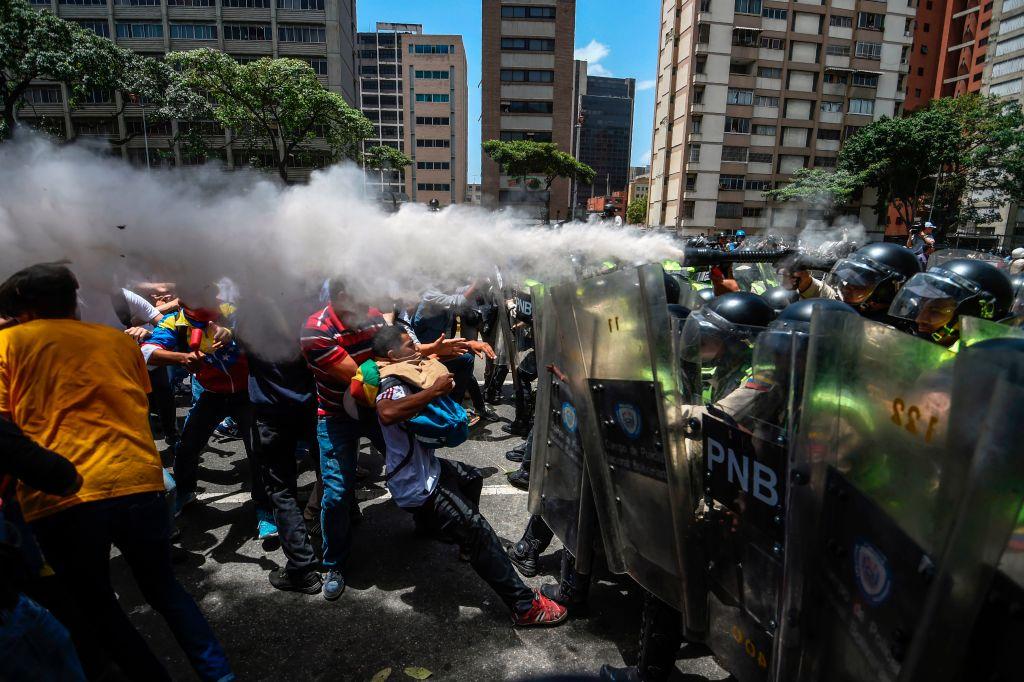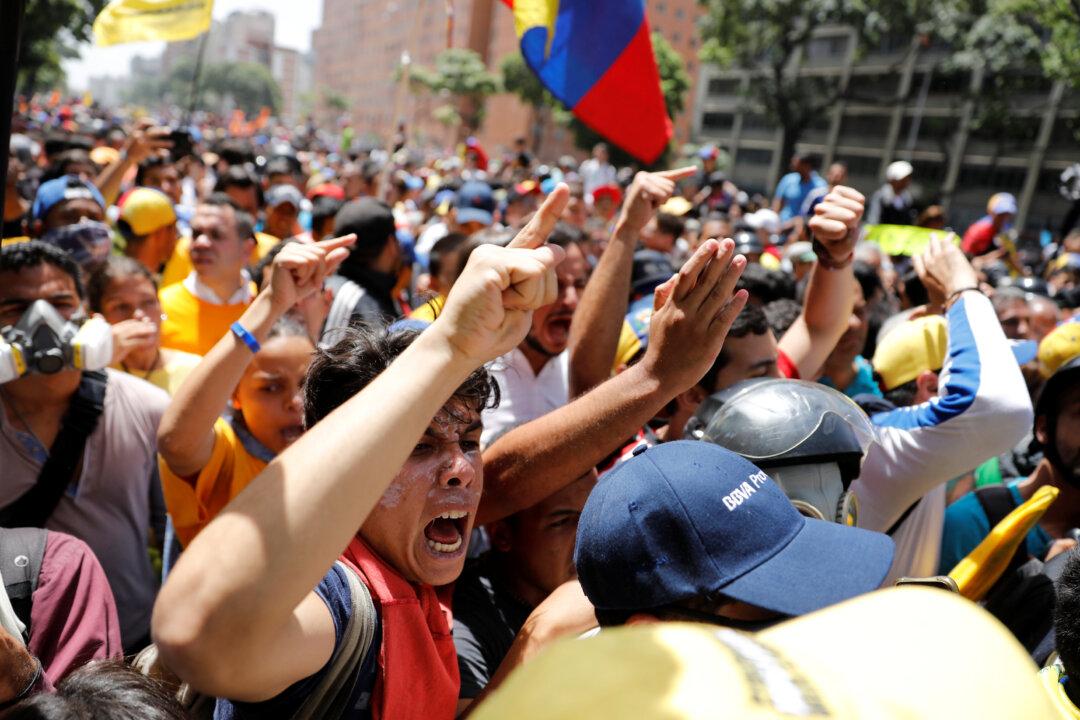CARACAS—Venezuelan security forces fought rock-throwing protesters with tear gas and pepper spray in Caracas on Tuesday after blocking a rally against President Nicolas Maduro’s unpopular socialist government.
The clashes began after authorities closed subway stations, set up checkpoints and cordoned off the capital city’s Plaza Venezuela, where Maduro foes had planned to meet for their latest demonstration.
In one street, kneeling women sang the national anthem as neighbors banged pots-and-pans from nearby buildings in a show of anger against a government they blame for a deep recession that has led to shortages of food and basics.
“We’re going to get rid of them, but we have to fight,” said Jose Zapata, a 57-year-old electrician, as he marched with a stick in his hand.






